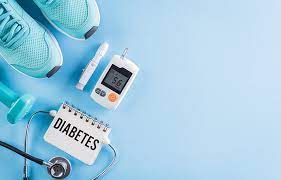
Diabetes, a serious lifelong condition, cannot be cured but early diagnosis can help patients better adjust to their new medical requirements and avoid dire consequences of leaving the life-threatening condition untreated. One doctor highlighted four vital warning signs that could be early indicators of diabetes.
Doctor Donald Grant, the senior clinical advisor at The Independent Pharmacy, told Express that it’s getting an early diagnosis is “crucial for preventing further health complications”. He cautioned: Unfortunately, diabetes can be extremely difficult to detect and is often left untreated until a further health complication makes the condition known.
Bathroom changes
Changes in your bathroom routine and bowel movements can be an indication of many health issues but frequent urination, in particular, is an early sign you may be living with diabetes. Often needing the toilet, also known as polyuria, is one way the body tries to get rid of excess glucose that could be building up due to diabetes. However, Dr Grant highlighted that a number of lifestyle factors can also cause polyuria and advised Brits to avoid self-diagnosing based on this one sign.
Blurry vision
Dr Grant noted: “The condition often has significant effects on the eyes, leading to complications such as diabetic retinopathy, where high blood sugar levels damage the retina’s blood vessels.” Because of this, diabetics may experience blurriness or distortion or develop conditions like glaucoma, cataracts and dry eye syndrome as a result of diabetes.
Sudden dramatic weight loss
Due to the body’s inability to properly create or use insulin, muscle and fat will be broken down as an alternative energy source leading to a substantial weight loss while increased urination adds this through fluid loss. Dr Grant advised: “Overall, it’s important to seek medical advice should you experience a sudden decrease in weight for any reason as it can lead to further health issues.”
Increased appetite or thirst
Again, in connection with the other early warning signs, Dr Grant pointed out that increased thirst could be a result of increased urination as the body tries to replace its fluids. Faulty insulin processes will also leave patients seeking out more glucose from consumed foods as the body needs to ingest more to compensate for the lack of converted energy.
Other symptoms
Dr Gant revealed some less common indicators of diabetes including erectile dysfunction, yeast infections or intense headaches. He emphasised readers shouldn’t self-diagnosed and highlighted that because of the “common health issues” that are warning signs of diabetes it can often be “extremely hard to detect” and encouraged Brits to get professional advice if they suffer from any of the symptoms.
Source: walesonline.co.uk




